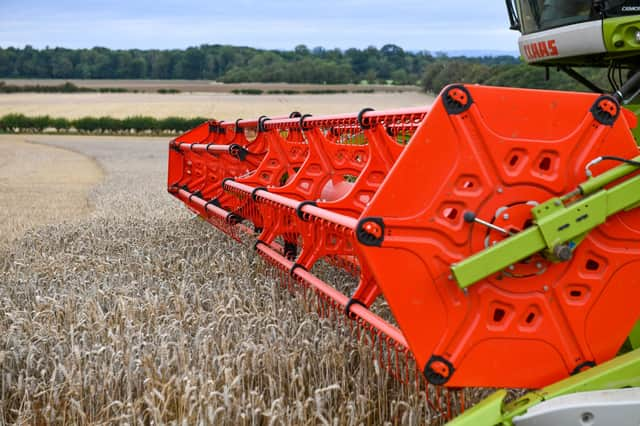Farming: Food shortages warning as conflict hits fertiliser trade


Svein Tore Holsether, head of Yara, Europe’s largest fertiliser manufacturer, told the BBC yesterday that the war in Ukraine would deliver a shock to the global supply and cost of food.
“We were already in a difficult situation before the war,” said Holsether, “and now it's additional disruption to the supply chains and we're getting close to the most important part of this season for the Northern hemisphere, where a lot of fertiliser needs to move on and that will quite likely be impacted."
Advertisement
Hide AdAdvertisement
Hide AdHe explained that while both Russia and Ukraine accounted for a considerable proportion of world wheat exports, Black Sea ports also supplied a significant proportion of global fertiliser needs. And on top of this the two regions also accounted for considerable quantities of the raw materials such as potash and phosphate used in fertiliser manufacture.
Holsether said that if fertiliser wasn’t used, yields of many crops would drop by 50 per cent:
"For me, it's not whether we are moving into a global food crisis – it's how large the crisis will be," he said.
Meanwhile the Irish Farmers Association (IFA) was warning that it would be “very unwise” for the irish Government to press ahead with plans to introduce compulsory crop growing measures before discussing the issue with farmers.
Press reports had indicated that the country’s Minister for Agriculture, Charlie McConalogue, was set to ask farmers to grow more grain due to counter potential supply shortages later this year resulting from the conflict in Ukraine.
While a meeting with producers was being set for later today, IFA president Tim Cullinan said that no discussions had so far taken place about moves to make crop growing compulsory. “We are in very challenging times and farmers will certainly play our part in any national or European effort,” he said.
“However, it is far from certain that asking all farmers to plant crops is the best use of the resources that are likely to be available to us,” he said.
He added that the biggest issue facing farmers was the rocketing cost and availability of inputs:
Advertisement
Hide AdAdvertisement
Hide Ad“This is where the government needs to focus their efforts, as well as looking at some of their own regulations,” Cullinan said.
“Irish farming is very different than it was in the 1940s. What was done then may not be the solution today,” he added.
Meanwhile, NFU Scotland’s policy chief, Jonnie Hall said that the economic, food security and farm business implications (and costs) of the current crisis paled into insignificance when set against the human suffering in Ukraine.
But, stating that history showed that the poorest nations suffered most during food crises, he warned that the potential impacts to the global agriculture market should be not be understated or ignored.
Comments
Want to join the conversation? Please or to comment on this article.